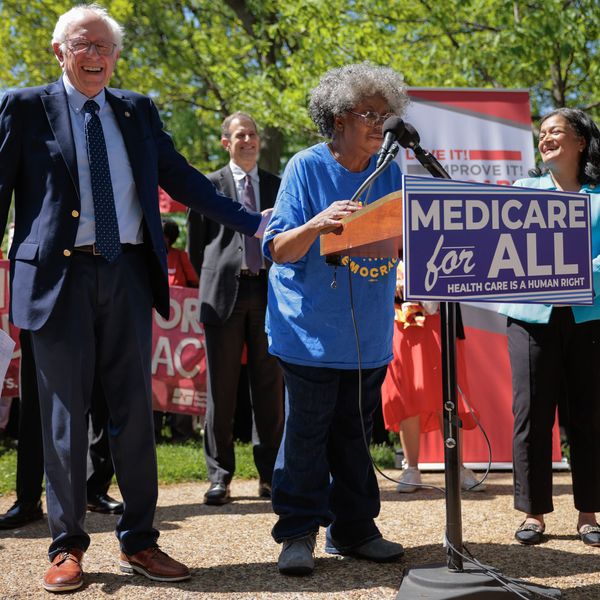For the past 30 years or so, a debate about the proper place for competition vs. regulation in our health care system has raged. That debate has now become a central theme in the 2012 presidential race. Democrats favor a regulated system while Republicans favor a more market-driven system, nationally and in Maine.
Americans have the most market-driven health care system in the world. We are now seeing the results. We have the world's highest health care costs, the highest rates of un- and underinsurance, some of the poorest health outcomes, and an almost universal belief that our health care system is badly broken.
Having a choice of health care providers is very important, since trust is critical to healing. But full-blown market-based competition doesn't work. It has been known for years that the more doctors and hospitals there are in a region, the higher the costs -- a phenomenon known as "provider-induced demand." The Institute of Medicine recently reported that our system wastes about $750 billion a year, more than 30 percent of our spending. Much is due to an oversupply of some services and technology.
Usually, I am a great fan of competitive markets -- where the seller and the buyer each have the same information about prices, features and availability. When it comes to buying a car, washing machine, TV or computer, I go to Consumer Reports or other websites where I can get current and accurate information about the price, quality, availability, reliability and other characteristics of the product I'm interested in. I can also find the opinions of lots of other customers. Then I can decide, usually at my leisure, which features of those products are important to me, how much I want to spend, and when and whether to make my purchase.
Good information is the one indispensable ingredient of competitive markets.
None of this applies to the strange world of health care. I don't know when I am going to have an injury or illness, what it will be, or what treatment will be recommended. There is vigorous disagreement among even the best-trained doctors about the most effective course of treatment for many conditions. Tests and procedures that have been standard for years can turn out to be more trouble than they are worth. Mammograms, prostate cancer tests and excessive imaging procedures for many patients are the latest examples.
The pricing of health care services is so complicated and irrational that it is impossible to determine in advance what the costs of treatment will be.
What about quality? Although there are efforts in Maine and elsewhere to measure and publish the quality of individual doctors and hospitals, they are very much in their infancy. During a recent personal encounter with the health care system, I found them to be of little use.
As far as shopping for health insurance (as opposed to health care), a recently issued report from Maine's Consumers for Affordable Healthcare documents the early results of attempts by the Maine Legislature to increase "competition" in the health insurance market. Those results are just what I (and many other experts) predicted. If you're young and healthy, your costs may go down a little. If you're older and more likely to be ill, your costs will go up a lot. Instead of encouraging larger pools where risk can be broadly spread, the new pro-competition law goes in the opposite direction by enabling insurers to charge the most vulnerable even more.
Despite their claims to the contrary, insurance companies cannot effectively control health care costs. Price competition among them is really a race to the bottom resulting in skimpier policies with more policyholder costs that are not worth much when the time comes to use them. That's why we're seeing more and more bankruptcies due to medical costs filed by people who have health insurance.
Most of this is intuitive for many people. Nevertheless, the myth of the sanctity of free markets in health care keeps on chugging along, despite overwhelming evidence from around the world that they don't work. That's why I advocate for a health care system more like Medicare than a free market -- sensibly regulated.
The next time somebody tells you we need more competition in health care, just remember that what you're hearing is the sound of smoke being blown in order to create a smokescreen. What the free marketeers (mostly corporate health care providers who are benefiting from our current system) are really saying is, "Give us your money, and leave us alone."
When it comes to competition and health care, let the buyer beware.



